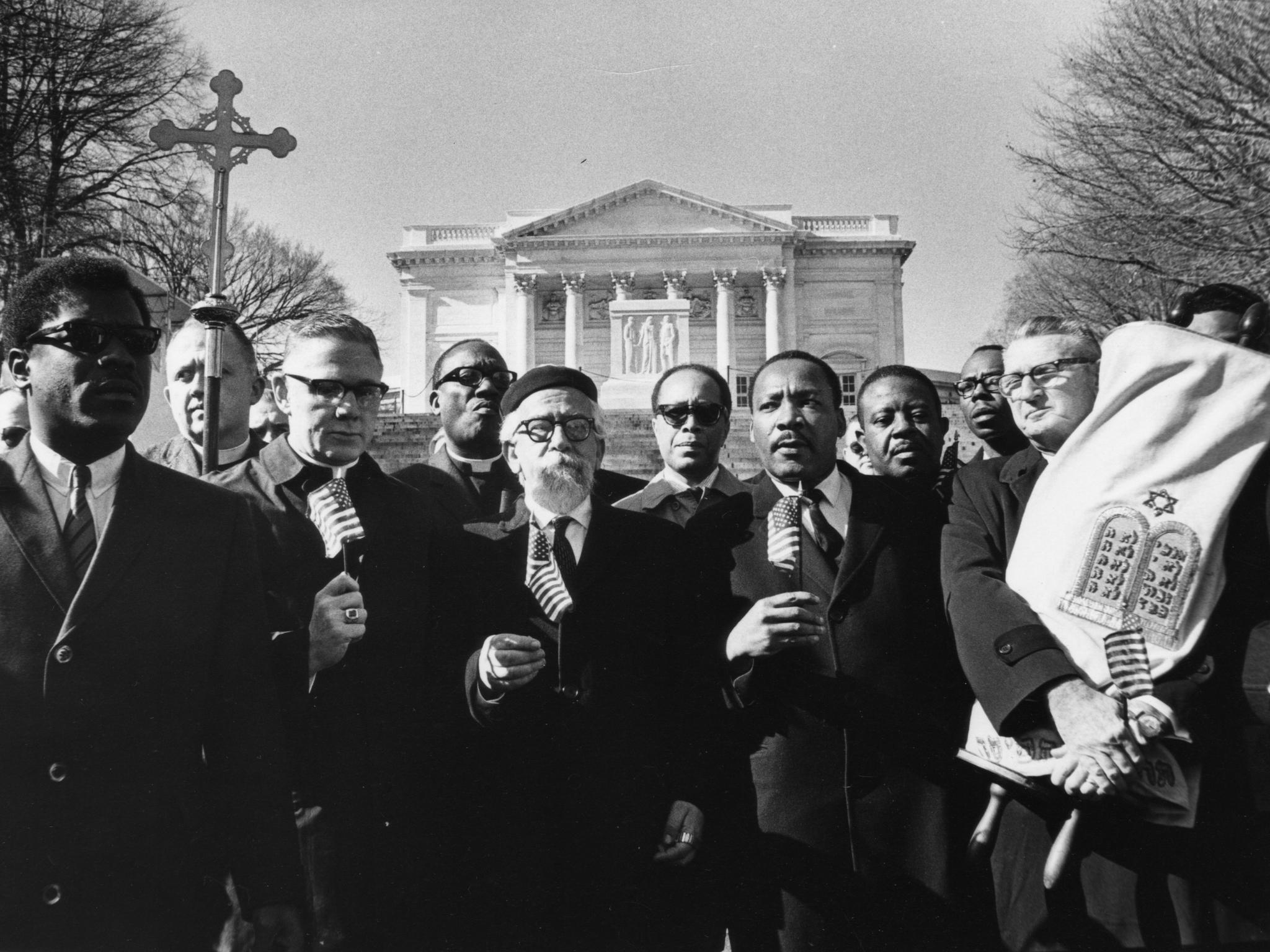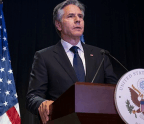Exploding Myths About 'Black Power, Jewish Politics'

Many Americans tell the story of Black-Jewish political relations like this: First, there was the Civil Rights movement, where the two groups got along great.
This was the mid-1950s to the mid-60s — picture Rabbi Abraham Joshua Heschel and Rev. Martin Luther King Jr. marching arm-in-arm from Selma to Montgomery. And James Chaney, Andrew Goodman and Michael Schwerner, murdered while organizing to register black voters in Mississippi.
Then, the story goes, there was a shift. In the mid-'60s, with the rise of black nationalism (and what some describe as black anti-Semitism), "the once wonderful alliance dissolved and split. And since the mid 1960s, it's been terrible."
That, says historian Marc Dollinger, is "the accepted wisdom on how to understand Jewish participation in the civil rights movement."
Except, Dollinger adds, that's not really what happened.
He lays all this out in his new book, Black Power, Jewish Politics: Reinventing the Alliance in the 1960s.
Dollinger, a professor at San Francisco State University, argues that much of our accepted knowledge about the interaction between
You’re reading a preview, subscribe to read more.
Start your free 30 days





